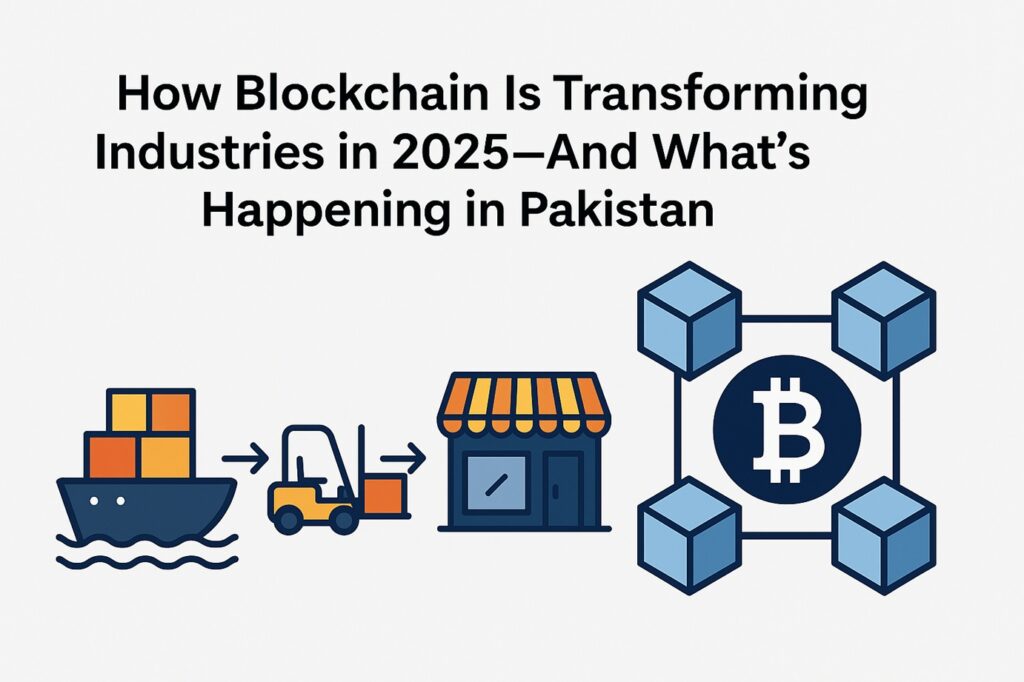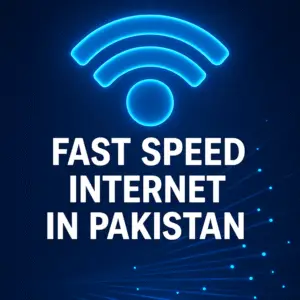How Blockchain Technology Is Transforming Industries in 2025—And What’s Happening in Pakistan
With the growing buzz surrounding Blockchain (BC) and cryptocurrencies, we felt it was the right moment to explore this game-changing technology. We’ll keep things simple and easy to understand, so whether you have a tech background or not, you’ll be able to follow along without any confusion.
Picture a giant ledger notebook that nobody can rip pages from or scribble over. That, in a nutshell, is blockchain—a technology that is quietly redefining how we record, verify, and share information, It is a type of digital record-keeping system where information is grouped into blocks, each connected to the previous one, forming a secure, time-stamped chain protected by cryptographic techniques. Because everyone on the network can see the same, unchangeable record, blockchain delivers a single source of truth without relying on one central authority.
Table of Contents
The technology securely links data blocks using cryptographic hashes. Each set of data contains the hash of the previous one—ensuring that if even a tiny detail is changed, the chain breaks. This structure creates a tamper-proof digital ledger, where every new block depends on the accuracy of the block before it, making the entire chain trustworthy and nearly impossible to alter without detection.
This technology is often linked to digital currencies such as Bitcoin, yet its applications extend far beyond, encompassing areas like supply chain management, education, financial services, real estate, healthcare, identity verification and governance & voting systems. Let’s dive into how this technology impacts each of these fields Globally.
Understanding Supply Chains & Why Supply Chains Needed a Fix
Every product you touch—your coffee mug, phone, or pair of sneakers—travels through a web of suppliers, factories, ships, trucks, and warehouses before it reaches us. The longer and more international that journey, the harder it is to monitor quality, stop fraud, or trace problems when something goes wrong. Traditional supply-chain databases are often siloed, slow, and vulnerable to manipulation. Blockchain changes the game by:
- Providing tamper-proof records of every hand-off.
- Speeding up recalls by pinpointing the exact batch at risk.
- Cutting paperwork through automated smart contracts—self-executing agreements that trigger when preset conditions are met.
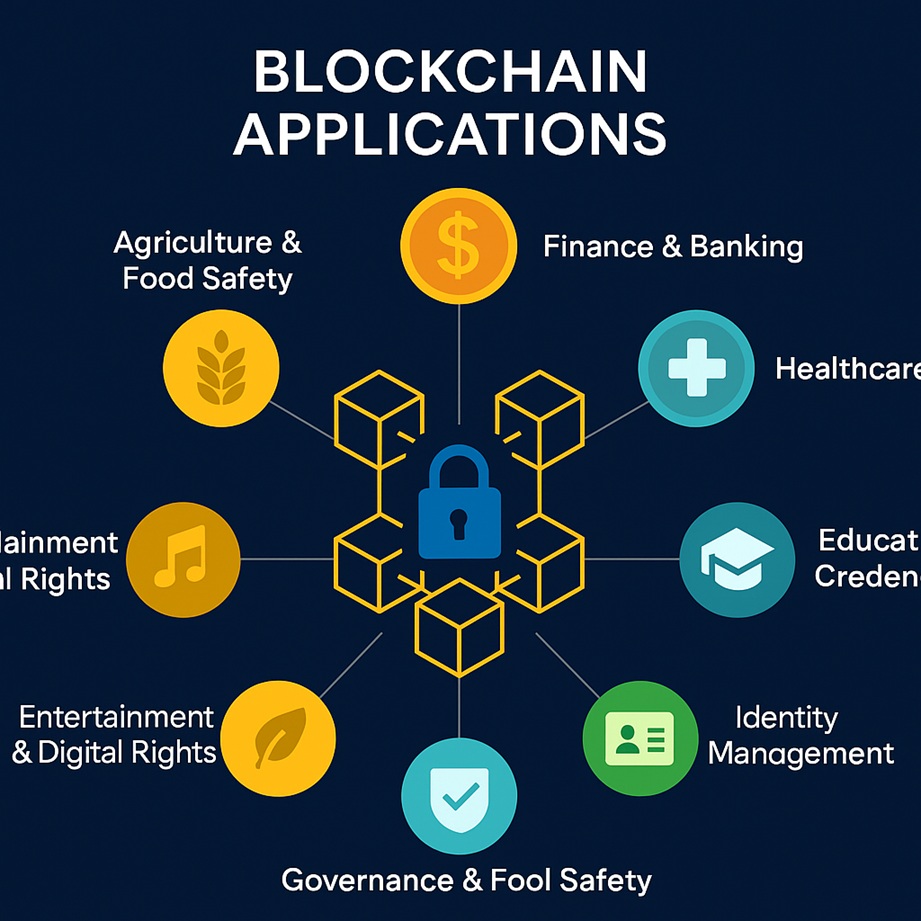
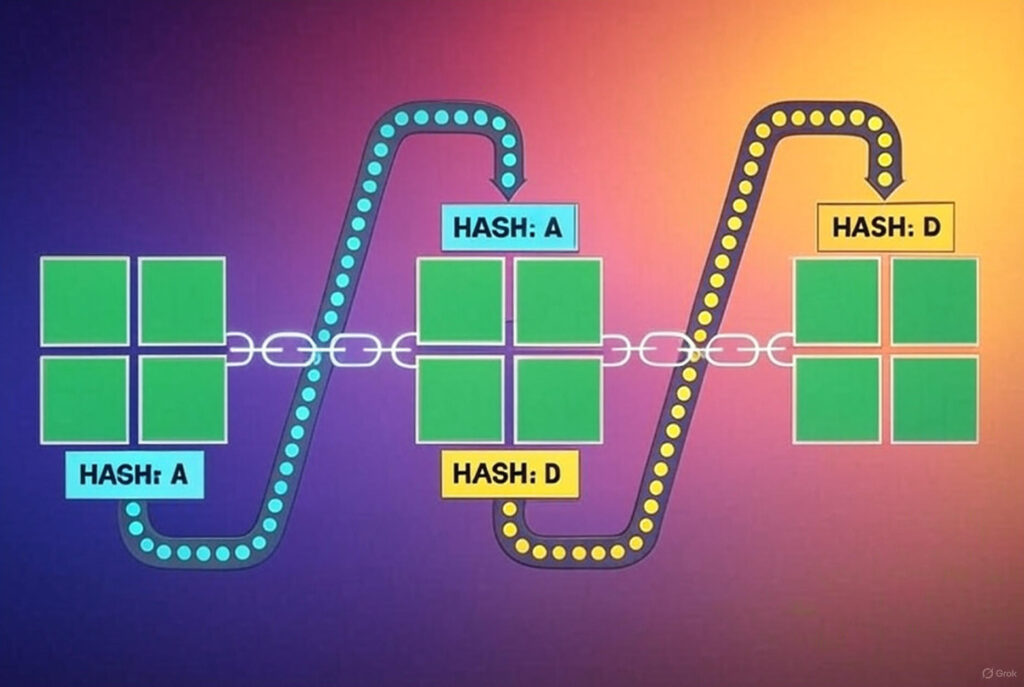
Education & Credentials
Fake diplomas can mislead employers, but blockchain creates secure digital certificates that are hard to fake. Employers can verify them in seconds. Many countries are adopting this technology to prevent these frauds, even in Pakistan universities are teaming up with blockchain companies to provide graduates with these trustworthy digital credentials.
Finance & Banking
Banks started using this technology to speed up international money transfers, settle financial deals instantly, and test stablecoins—digital coins linked to real currency. This leads to lower costs, fewer middlemen, and transfers that take seconds instead of days
Healthcare
Fake drugs can harm people. This technology keeps a secure record of every step a medicine takes—from the maker to the hospital—so patients get real medicines. Hospitals are also using blockchain to share patient health records safely between different systems.
Real Estate
Buying property usually means piles of paper and weeks of verification. So many countries including US, UAE, Germany and Singapore etc., now test blockchain land registries, where titles are stored on-chain and transfers happen with a few clicks, drastically reducing fraud.
Governance & Voting
This BC technology secures voting systems by creating a digital record that cannot be changed or deleted, ensuring every vote is accurately counted. Each vote is stored on a decentralized network, making it nearly impossible to hack or manipulate. This technology also allows voters to verify their own votes while keeping their identity private, building trust in the process. From Seoul to Zug, cities are trying BC for online voting. It keeps votes safe and clear, stopping issues like missing ballots or vote tampering. Although BC keeps votes secure, some worry that mobile devices used for voting can be hacked, risking voter privacy, this do remain the topic for the debate.
Identity Management
BC keeps identities safe by letting people control their personal information using a secure digital system. It stores verified details on a tamper-proof digital record, so no one can change or steal them. People can share only what’s needed, keeping their privacy without needing a central authority. Around one billion people worldwide don’t have official IDs. Blockchain-based self-sovereign identity lets individuals keep verified documents, like birth certificates or licenses, securely and share only what’s necessary.
Agriculture & Food Safety
BC helps farmers record details about their crops, like where they were grown, when they were harvested, and what pesticides were used, in a secure digital system. Retailers and customers can scan a QR code on the product to see this information, which builds trust because they know exactly where their food comes from. In Pakistan, experts see huge potential for using blockchain to improve agricultural supply chains, making them more reliable and efficient.
Agri-tech startups in Pakistan, especially in Lahore and Karachi, are testing digital platforms to track crops from farm to market. For example, startups like Farmdost use BC and QR codes to record every step of a crop’s journey, ensuring transparency. This helps reduce food spoilage by improving storage and delivery, while also helping farmers earn more by connecting them directly to buyers.
Flight Insurance
BC makes insurance faster and easier by using smart contracts, which are automatic digital agreements that act when certain conditions are met. For example, if a flight is delayed, BC can check airline data and instantly send compensation to passengers, skipping paperwork or long waits. This saves time, reduces costs, and builds trust. Companies like Etherisc have launched such systems for the top 80 airlines, using blockchain to ensure quick, transparent payouts.
Pakistan’s Blockchain Momentum
Blockchain technology began gaining attention in Pakistan around 2017–2018, primarily through early discussions and exploratory initiatives in the financial sector. Practical adoption started later. In 2019, Faysal Bank adopted blockchain for cross-border payments, and Telenor Microfinance Bank collaborated with Valyou Malaysia to deploy blockchain-based remittance services, marking some of the first real-world applications. Additionally, academic and research interest grew around this time, with institutions like IBA Sukkur introducing blockchain-focused programs in 2019. So, while awareness emerged in 2017–2018, practical implementation began in 2019.
The first Pakistan Blockchain Summit took place at the Serena Hotel, Islamabad on January 18, 2022. The event was a collaboration between the BSV Blockchain Association and the Pakistan Ministry of Science and Technology, organised by Ejad Labs, and it hosted many government and business decision-makers at the physical venue, as well as a large online audience which viewed the live stream of the event. Click here to review more details
In last Month (May 2025), the Pakistani government has issued its first blockchain-based computing license to a local data center, marking a significant step in advancing the country’s digital infrastructure. This move aims to foster innovation in blockchain technology, enhance data security. In the same time Prime Minister Shehbaz Sharif appointed Bilal Bin Saqib as his special assistant on blockchain and cryptocurrency Click Here to review more details.
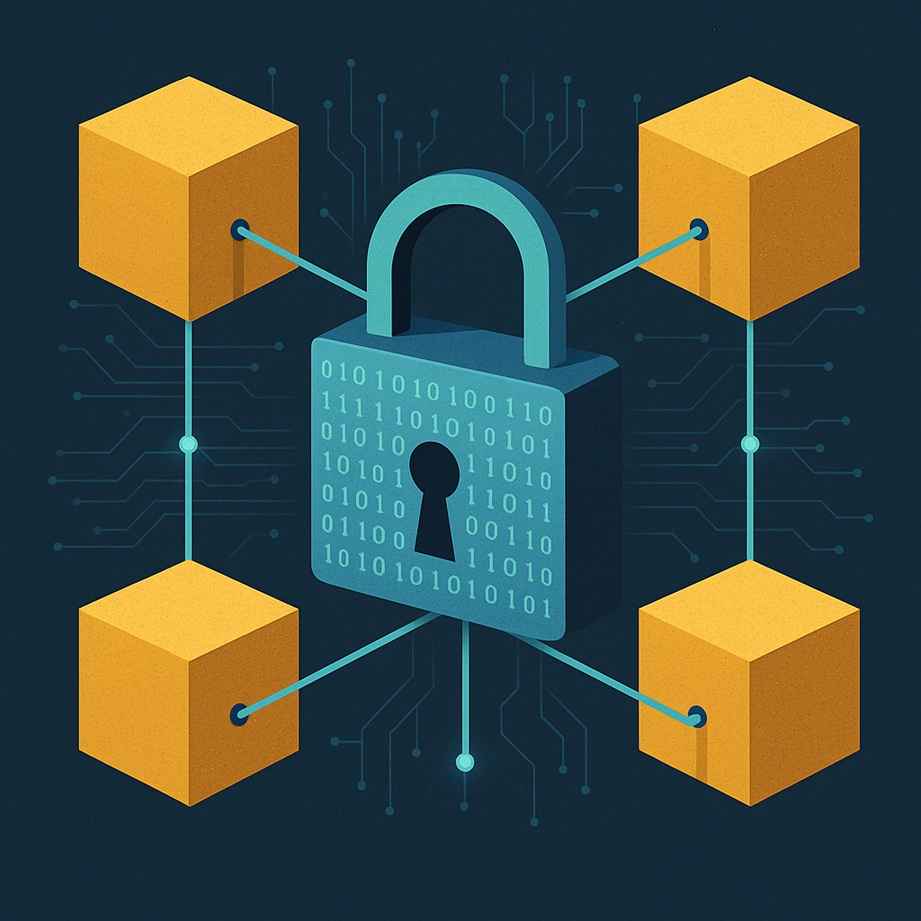
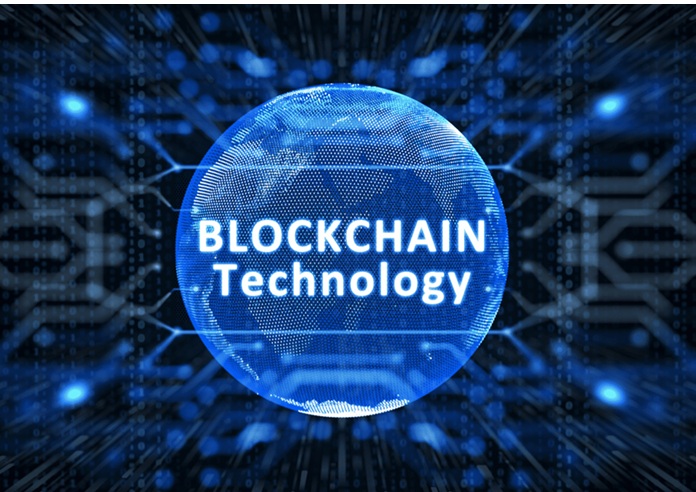
The Securities and Exchange Commission of Pakistan (SECP) has published both concept and position papers to seek feedback on regulating platforms dealing with digital assets.
While the State Bank of Pakistan still debates the legal status of public cryptocurrencies, it is collaborating with the Pakistan Crypto Council on a draft framework for digital and virtual assets—a step toward clearer policy.
Punjab’s Urban Land System Enhancement (PULSE) project and related pilots explore blockchain to digitize titles, curb fraud, and speed transfers.
Blockchain helps universities create secure digital certificates that can’t be faked. It stores credentials on a tamper-proof digital record, letting employers quickly verify them. In Pakistan, some universities, like LUMS and those working with the Pakistan Blockchain Institute’s Certificado program, are using blockchain to issue secure diplomas. This fights fake degrees and builds trust, though not all universities in Pakistan have adopted it yet.

Challenges & The Road Ahead
Pakistan faces challenges like unreliable rural internet (Click here to review the blog regarding Fast Internet speed in Pakistan) , a shortage of blockchain developers, unclear crypto and data privacy regulations, and high costs for small businesses, but with public-private pilots, growing investor interest, and government support, the country could rapidly advance its blockchain adoption, much like it did with mobile banking a decade ago.
Conclusion
BC promises trustworthy information, Either tracking of mangoes or protecting land records with clear, verifiable details. By 2025, it’s a real tool used in daily systems globally, and in Pakistan, excitement is growing with new government rules, trial projects, and active business owners. The big question is: how fast can these small tests become big national solutions? If you have any information that you want to share with us regarding Blockchain, you can send us at Editors@NetGlowz.com.
Frequently Asked Question | FAQs
- Is blockchain only useful for cryptocurrencies?
No. While it powers Bitcoin, blockchain now secures supply chains, medical records, land titles, and more. - Are any Pakistani banks using blockchain yet?
Several commercial banks are testing blockchain proof-of-concepts for trade finance and cross-border settlements while awaiting clearer regulation. - Can blockchain really stop land fraud in Pakistan?
By storing ownership records on an immutable ledger, blockchain makes it nearly impossible to forge or double-sell titles, a problem that plagues conventional systems.
4. How soon could ordinary Pakistanis feel blockchain’s impact?
Pilot projects—digital diplomas, land-record portals, and produce-tracking apps—are already live. Broader benefits will grow as regulations and infrastructure mature over the next two to three years.
References
- Walmart & IBM Food Trust case study on rapid traceability in fresh produce. lfdecentralizedtrust.org
- Certificado partnership for blockchain-based certificates, Pakistan Blockchain Institute. pakistanblockchaininstitute.org
- Samie & Malik, “Blockchain Technology and its Impact on Agricultural Supply Chains in Pakistan,” Journal of Student Research, 2024. jsr.org
- Rizwan Maqsood, “Can land records use a Blockchain reset?” The Express Tribune, 9 Feb 2025. tribune.com.pk
- Dawn News, “Bilal made PM’s aide on crypto, blockchain,” 27 May 2025. dawn.com
- SECP, “Position Paper: Regulation of Digital Asset Trading Platforms,” 2020 (latest consultation referenced May 2025). secp.gov.pk
- Dawn News, “Crypto council agrees on technical committee to draft framework,” 2 Jun 2025. dawn.com
Feel free to let me know if you’d like the article exported as a PDF, formatted for WordPress, or tailored further!

